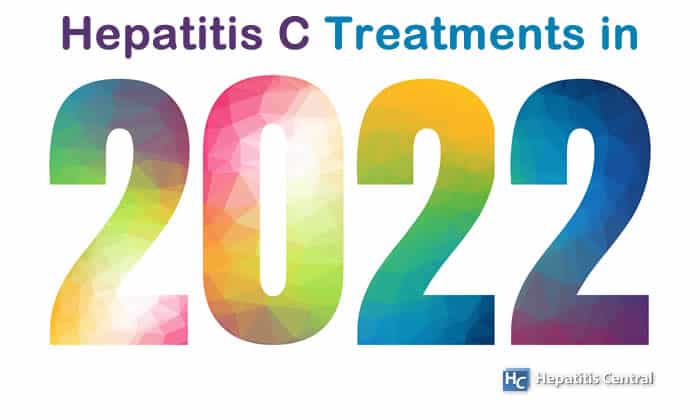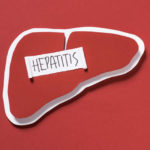Hepatitis C Treatments in 2022


Millions of people in the U.S. are living with the hepatitis C virus (HCV). According to the Department of Health & Human Services, the actual number of those infected is thought to be somewhere between 2.5 million and 4.7 million—although, more than half of the people who have this virus are unaware of its presence in their bodies. (1)
If you have HCV, you may be wondering what treatments are available in 2022. Here are a few options to consider.
Oral Antiviral Hepatitis C Medications
Before 2014, hepatitis C was treated with interferon and ribavirin and required getting a shot once a week along with taking the drug in pill form. (2) Yet, the problem with interferon was not just that it was typically unsuccessful, but patients taking this drug also often experienced numerous adverse effects.
Fast forward to today and people diagnosed with HCV have many antiviral medication options that can help treat this virus – and without the effects of interferon. Ribavirin is still one, although the National Institute of Health indicates that it doesn’t treat HCV unless it is combined with another medication. (3)
Other combinations of HCV drugs available in 2022 include:
- Elbasvir and Grazoprevir – a combination HCV NS5A inhibitor and protease inhibitor that is taken once daily for 12 to 16 weeks (4)
- Glecaprevir and Pibrentasvir – a combination HCV NS3/4A protease inhibitor and HCV NS5A inhibitor that is taken once daily for 8 to 16 weeks (5)
- Ledipasvir and Sofosbuvir – a combination HCV NS5A inhibitor and nucleotide polymerase inhibitor that is taken once daily for 8 to 24 weeks (6)
- Sofosbuvir and Velpatasvir – a combination HCV NS5B polymerase inhibitor and HCV NS5A replication complex inhibitor that is taken once daily for up to 12 weeks (7)
- Sofosbuvir, Velpatasvir, and Voxilaprevir – a combination non-nucleoside NS5B polymerase inhibitor, HCV NS5A inhibitor, and HCV NS3/4A protease inhibitor that is taken once daily for up to 12 weeks (8)
Injection Medications
There are also a few HCV medications that are currently available that are taken via injection. These injections may be recommended for patients with chronic or long-term hepatitis C infection and/or those who have liver damage to help control the disease.
They include:
- Peginterferon Alfa-2a – comes in a vial, prefilled syringe, or disposable autoinjector and is injected once a week (9)
- Peginterferon Alfa-2b – comes in a vial (as a powder) and single-dose injection pen to mix and is injected once a week (10)
Complementary and Alternative Options

For patients preferring a more natural option, there are a few complementary and alternative remedies that may help improve liver health. One type of alternative option that has been studied a lot is dietary supplements, some of which have found promising effects.
They include: (11)
- Milk Thistle – an anti-inflammatory and antioxidant that appears to inhibit lipid peroxidation and provide hepatoprotective properties, such as what is found in UltraThistle
- Stronger Neominophagen C (SNMC) – potential benefits include hepatic cellular membrane stabilization and PGE2 production inhibition
- Cathy Herbal Tablet (CH100) – a combination of 19 Chinese herbs that may lower alanine transaminase (ALT) levels
- Thymus Extract – which some studies have found to help reduce HCV RNA
Liver Transplant
If hepatitis C worsens to the point of liver failure, a transplant may be needed. A large number of liver transplants that occur in the U.S. annually are due to hepatitis C-related liver failure. (12)
What About a Hepatitis C Vaccine?
Although researchers have been trying to develop a vaccine for HCV for more than three decades, and at least one clinical trial is currently in the works, there is no vaccine available today that offers protection against the hepatitis C virus. (13)
The Future of HCV Treatment
More research is being conducted every day to help identify any new treatment remedies that are effective for curing or reducing the progression of HCV.
As scientists begin to learn more about and better understand these remedies and their effects, it’s likely that more options will be added to this list as time goes on, offering even more hope for people who have the hepatitis C virus.
(1) U.S. Department of Health & Human Services. (2016, June 7). Viral Hepatitis in the United States: Data and Trends. Retrieved December 18, 2021, from https://www.hhs.gov/hepatitis/learn-about-viral-hepatitis/data-and-trends/index.html
(2) U.S. Department of Veterans Affairs. (2020, July 8). Hepatitis C Medications: An Overview for Patients. Retrieved December 18, 2021, from https://www.hepatitis.va.gov/products/treatment-update.asp
(3) NIH National Library of Medicine. (2016, June 15). Ribavirin. Retrieved December 18, 2021, from https://medlineplus.gov/druginfo/meds/a605018.html
(4) NIH National Library of Medicine. (2020, February 15). Elbasvir and Grazoprevir. Retrieved December 18, 2021, from https://medlineplus.gov/druginfo/meds/a616016.html
(5) NIH National Library of Medicine. (2020, February 15). Glecaprevir and Pibrentasvir. Retrieved December 18, 2021, from https://medlineplus.gov/druginfo/meds/a617039.html
(6) NIH National Library of Medicine. (2019, December 15). Ledipasvir and Sofosbuvir. Retrieved December 18, 2021, from https://medlineplus.gov/druginfo/meds/a614051.html
(7) NIH National Library of Medicine. (2020, May 15). Sofosbuvir and Velpatasvir. Retrieved December 18, 2021, from https://medlineplus.gov/druginfo/meds/a616034.html
(8) NIH National Library of Medicine. (2020, February 15). Sofsbuvir, Velpatasvir, and Voxilaprevir. Retrieved December 18, 2021, from https://medlineplus.gov/druginfo/meds/a617037.html
(9) NIH National Library of Medicine. (2016, June 15). Peginterferon Alfa-2a Injection. Retrieved December 18, 2021, from https://medlineplus.gov/druginfo/meds/a605029.html
(10) NIH National Library of Medicine. (2016, June 15). Peginterferon Alfa-2b (PEG-Intron). Retrieved December 18, 2021, from https://medlineplus.gov/druginfo/meds/a605030.html
(11) U.S. Department of Veterans Affairs. (2018, October 23). Complementary and Integrated Medicine for Hepatitis C. Retrieved December 18, 2021, from https://www.hepatitis.va.gov/hcv/treatment/alternative-therapies.asp
(12) Mayo Clinic. (2020, November 21). Liver Transplantation for Chronic Hepatitis C: How Common Is It? Retrieved December 18, 2021, from https://www.mayoclinic.org/diseases-conditions/hepatitis-c/expert-answers/liver-transplant-for-hepatitis-c/faq-20114794
(13) Mayo Clinic. (2020, October 28). Why Isn’t There a Hepatitis C Vaccine? Retrieved December 18, 2021, from https://www.mayoclinic.org/diseases-conditions/hepatitis-c/expert-answers/hepatitis-c-vaccine/faq-20110002







